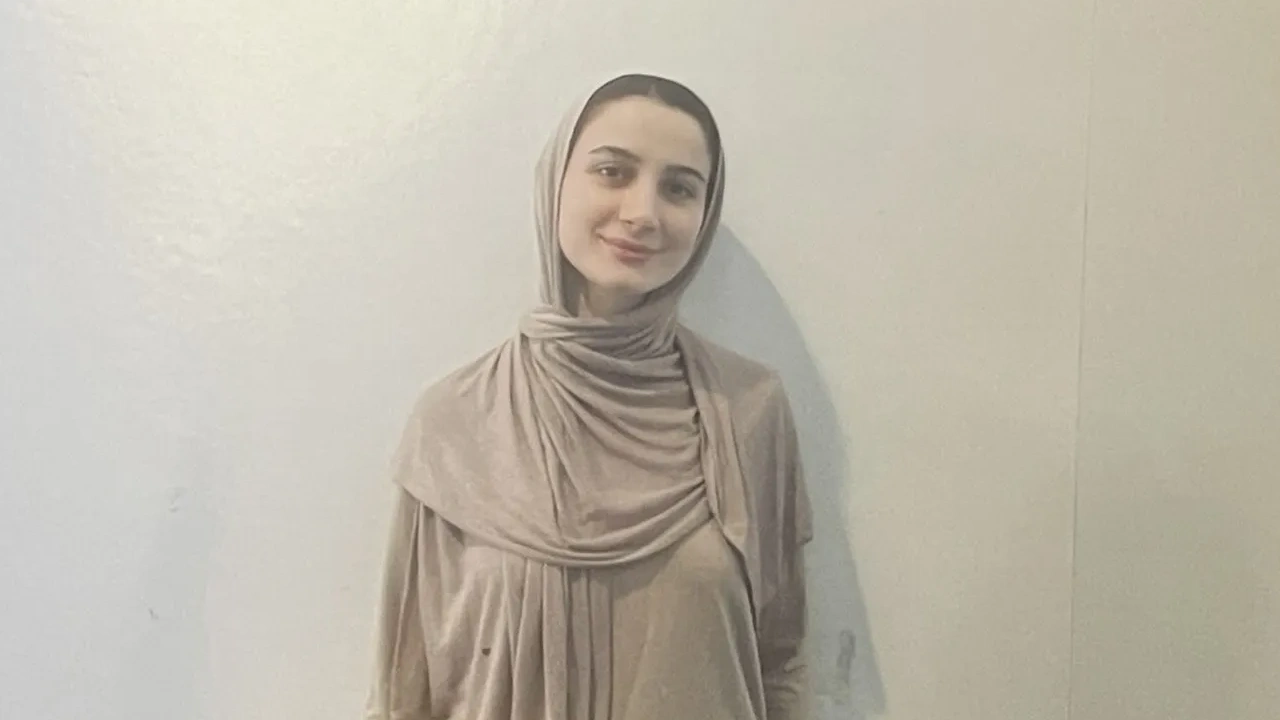Second Palestine Action Prisoner Hospitalised
Six are currently on hunger strike.
by Harriet Williamson
28 November 2025

A second prisoner held on remand for alleged offences relating to Palestine Action has been hospitalised after refusing food for nearly three weeks.
Teuta ‘T’ Hoxha was hospitalised on Thursday 27 November due to her rapidly deteriorating health after 20 days on hunger strike, according to campaign group Prisoners For Palestine (PFP).
She is the second hunger-striking prisoner to be hospitalised after Kamran Ahmed on Tuesday. Ahmed reportedly collapsed on Friday 21 November with low blood sugar levels indicating hypoglycaemia.
Hoxha and Ahmed are two of six Palestine Action prisoners on a rolling hunger strike, demanding that Israeli weapons firm Elbit Systems shuts its UK sites and they are granted bail. All six are awaiting trial for charges including criminal damage and aggravated burglary. They have not been convicted of any crime.
Hoxha’s younger sister Rahma, who is currently in sixth form, told Novara Media: “I heard the news about my sister being in hospital right after I finished my lesson. I was shocked and began to cry – I was so worried about her.
“My sister is in such a vulnerable position.”
Hoxha joined the hunger strike on 9 November, a day before Ahmed. She has been suffering from fatigue, body rashes and sleep disruption, according to PFP. As of Thursday, Hoxha’s ketone levels were reportedly at 5.9mmol/L – a dangerously high level – and her blood sugar was “dangerously low”. She was moved to the healthcare wing on Thursday, where she continues to refuse food.
Rahma said it’s “absolutely shameful” that the government hasn’t engaged with any of the hunger-strikers’ demands. “Will it take all six prisoners being hospitalised before they respond?” she asked.
Hoxha is one of the ‘Filton 24’ – 24 people currently held on remand in connection with an action at an Elbit Systems factory in Filton, Gloucestershire, in August 2024. She has been imprisoned without trial since November 2024.
This is Hoxha’s second hunger strike, after previously refusing food starting in August this year. She told Novara Media in September that she was being “punished retrospectively” for the proscription of Palestine Action under UK terror law.
Hoxha was moved to HMP Peterborough from HMP Bronzefield on the day that MPs decided to ban Palestine Action under the Terrorism Act, and said that her treatment had worsened after the proscription. The English Literature graduate described being “called a terrorist” and “told that I’m part of a terrorist group” by prison staff, along with having her mail withheld and her job in the prison library taken away.
Amu Gib, Heba Muraisi, Jon Cink, Qesser Zurah, Ahmed and Hoxha went on hunger strike earlier this month after experiencing what they call “systematic abuse” by prison authorities.
Speaking on behalf of PFP, former Palestine Action prisoner Audrey Corno said: “This is [Hoxha’s] second hunger strike in three months. Shame on the Home Office and Ministry of Justice, this is on their hands.
“Prisoners For Palestine wrote to them two weeks before the strike started and T is now on day 20 of not having eaten – we have heard nothing from the government. They need to engage with the hunger strike and the demands now.”
Campaign groups and organisations including CAGE International, Defend Our Juries, Campaign Against the Arms Trade and Black Lives Matter UK have pledged support to the hunger-strikers. MPs Jeremy Corbyn and Zarah Sultana have sent letters to the government about the treatment of the six prisoners.
The proscription of Palestine Action is currently being challenged at a judicial review in London’s high court.
HMP Peterborough is run by Sodexo Group – a private company that specialises in food services and facilities management.
In September, a HMP Peterborough spokesperson said: “We cannot provide information about specific individuals however, we can confirm that all prisoners have full access to meals. Any prisoner refusing food receives regular medical assessment, electrolytes and support from clinicians, as well as being offered mental health support.
“Furthermore, if hospital care is ever clinically required, it is provided straightaway. This is in line with policies and regulations applied across the whole prison estate. We can also confirm that we offer a wide range of education and employment opportunities within the prison. While not every opportunity is suitable for all prisoners, there are options for everyone.”
Harriet Williamson is a commissioning editor and reporter for Novara Media.


